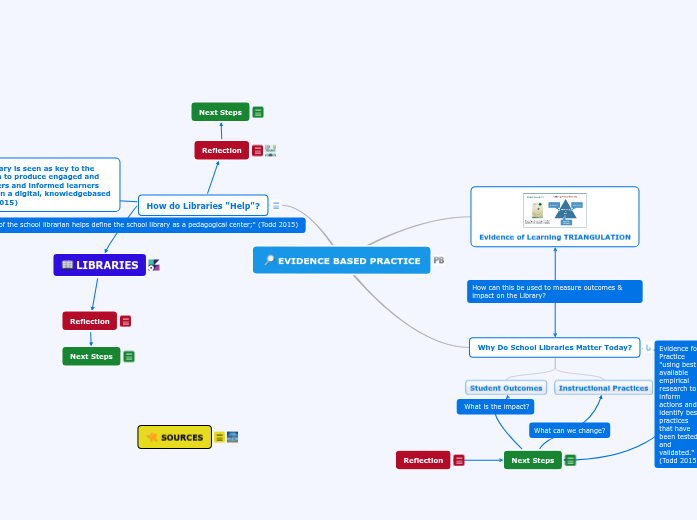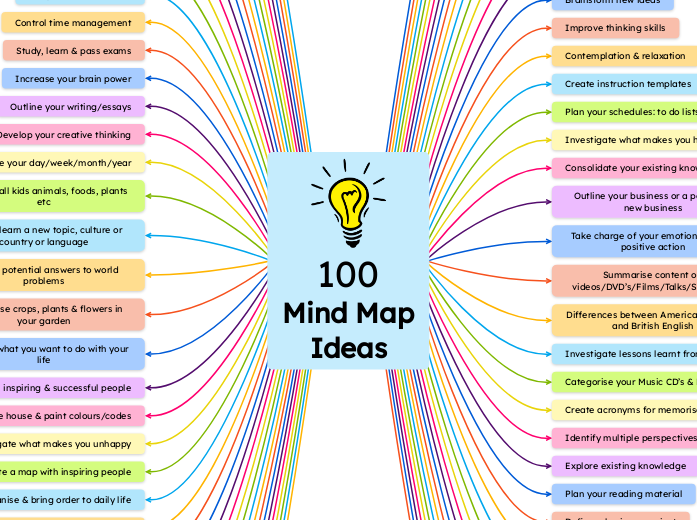SOURCES
“Leading Learning: Standards of Practice for School Library Learning Commons in Canada - Moving Forward”, 2014. Canadian Library Association, http://llsop.canadianschoollibraries.ca/moving-forward/
Lamb, Annette, and Larry Johnson. “Program Administration: Time Management.” The School Library Media Specialist, EducScapes, eduscapes.com/sms/administration/time.html.
“Libraries.” People for Education, 2017. https://peopleforeducation.ca/wp-content/uploads/2017/06/P4E-Libraries-2017.pdf
“Reading for Joy.” People for Education, 2011. http://www.accessola.org/web/Documents/OLA/issues/Reading-for-Joy.pdf
“Towards Defining 21st Century Competencies for Ontario: 21ST CENTURY COMPETENCIES”, 2015. The Ontario Public Service. Queen’s Printer for Ontario.
Todd, Ross J. “Evidence-Based Practice & School Libraries: Interconnections of Evidence, Advocacy, & Actions.” Vol. 43, no. 3, Jan. 2015, bcpslis.pbworks.com/w/file/fetch/104713363/KQ_EBP_for_School_Libraries.pdf.
As the TL we need to continue to advocate for the importance and irreplaceable role of the library and TL. By continuing to share EBP with the school and administrators that demonstrate the on-going benefits and integral role the LLC plays in creating the type of learners that will be prepared to be active, engaged, critical, and creative global citizens.
Share knowledge during staff meetings. Help other to use new tech tools and resources by offering quick and easy lunch and learns. Continue to learn and refine my own learning and skills to support others. Attend workshops, PD sessions, engage in active learning communities that can continue to keep me up to date and inspired.
According to the People for Education’s document “Libraries”, there is no current provincial policy regarding any guidelines to ensure all school have functioning libraries.
This seems to be counterintuitive to the Ministries’ document Towards Defining 21st Century Competencies for Ontario: 21ST CENTURY COMPETENCIES, which highlights skills that would pedagogically stem from the LLC. Without a LLC, who would lead such school initiatives and create an atmosphere akin to that of the LLC? The 21st Century Competencies that the ministry outlines are resonate with the elemental core of the role of the TL and LLC.
As outlined in the document, the OCDSB is replacing TL positions entirely with Library Techs. Back to the reading and articles in Module 13, you want to make sure that you are keeping the role of the TL and LLC to above and beyond just the clerical aspect of checking out books. You don’t want to make your own job obsolete (Lamb & Johnson, Program Administration: Time Management).
As we know, the role of the TL is so much more than the clerical components!
LIBRARIES
As part of the English department, I will take my classes to the library for weekly book exchanges and to pick up books for Daily Independent Reading. I will encourage my department to do the same. I will get my students to create book lists for what they want to read. We will have regular book talks and quick speed date book activities. I plan on creating a classroom lending library as well.
If I were the TL, in the first 1-2 weeks of school I would either visit various classes myself OR recruit a team of students to go to all the grade 9 classes (especially) and do quick 1-2 minute book talks on the hottest new books that would appeal to a diverse range of readers, to entice students to get to the library to borrow books. I would also do this in combination of tweeting teacher/student recommendations, which would then appear on the schools Twitter newsfeed on the TVs in the main hallways. I would partner with the Media class to see if they could film quick 2 minute book talks with various students and staff around the school, and post these to their daily “school news” broadcasts.
Can be difficult to engage students in getting to the LLC, particularly for book exchanges, in the upper high school years. This is not a practice that is frequently done in high school (as much as it is in elementary schools).
STANDARDS OF PRACTICE
My school is in the “Emerging Phase” (CLA 2014) for all the standards, sometimes even in the “Exploring Phase” (CLA 2014).
(CLA 2014)
As many schools experience the effects of the diminished role of TLs there is little time for those in half-time TL positions to dedicate to being the go-to person for the school. The two part-time TLs at my school teach other classes and are both still dabbling with the integration of technology into their own more “traditional” classes. The school has very low levels of literacy and an ever increasing lack of enthusiasm for reading. Changing the role of the LLC to be the initiator of pedagogical change in the school would be a very big undertaking, but it would have a lasting and positive ripple effect.
To close this gap that exists between the Ministry’s objectives and the board’s objectives for 21st Century Competencies there needs to be a whole board/school-wide initiative to help focus resources to make the LLC the hub and home of all of this (training for TLs and increased partnerships with admin and other board-tech departments). In this course we are all qualified TLs, yet for so many of us, our expertise in tech is just at the beginning stages. I am definitely far better off in my tech knowledge than before the start of this course, but would I be ready to lead the school?
Within the HWDSB there is a BIG focus to accomplish the types of goals that were mentioned in the document “Evidence-Based Practice and School Libraries” Concept of Help section (Todd 2015). It would appear that many teachers, myself included (before this course), felt ill equipped, uncertain, and apprehensive to execute the type of immersive learning in our classrooms using the type technology that the board is “encouraging” teachers to use. Most of us feel like we don’t necessarily know where to start.
If a known learning community and support network existed in the school, the whole school climate would change with regards to the use of integrated technology, Inquiry Based Learning, Research & use of electronic resources, collaborative teaching, creative thinking/teaching etc. They would be skills that would begin to develop and flourish within the school and in the thinking and learning of the entire school. Many teachers would start to become “experts” that could share in their understanding, thus continuously increasing the pool of people becoming more comfortable in this type of pedagogy.
Back in Module one, when we looked at the document Towards Defining 21st Century Competencies for Ontario: 21ST CENTURY COMPETENCIES from the Ministry of Education
. There seems to be a gap between the school board, and the Ministry’s expectations for education verses what is happening on the ground in schools. This is because not all teachers are equipped with the knowledge and tools to meet those suggested guidelines by the ministry.
READING FOR JOY
There is evidence of declining enjoyment of reading amongst students. However, a strong relationship exists between a positive attitude towards reading and greater success in all subject areas (deeper development of conceptual understandings). Engaged Readers are more likely to be civic and socially engaged.
(Reading for Joy 2011)
"The school library is seen as key to the school’s mission to produce engaged and motivated readers and informed learners who can thrive in a digital, knowledgebased world;" (Todd 2015)
Next Steps
“The learning-centered work of the school librarian helps define the school library as a pedagogical center;” (Todd 2015)
Although, I am not the TL at this school, it would be beneficial for the school to do more of a holistic approach of the whole school’s triangulated data.
School administrators in partnership with the TL/LLC, board support (from Literacy Coaches, Tech Department, Library etc) could sit at the table together to focus on a larger school-wide approach. Once a larger school focus has been determined, from there, individual departments could plan the teaching/learning strategies to implement to improve learning outcomes. If the climate of the school is not one that has specific focus on literacy, tech, and Inquiry Based Learning, then perhaps this is something that could be implemented as a whole school with the LLC being the hub or “pedagogical center” (Todd 2015).
Reflection
My school last year, began using "Evidence in Practice" (Todd 2015) to identify learning needs and achievement gaps within our school’s individual departments. We used our triangulated data to implement focused teaching strategies to improve student learning outcomes within our department divisions.
At this school there are two TLs that work in the LLCs. They are also both part of other departments. Unfortunately, neither focused on looking at EBP within the library setting. I don’t think it occurred to anyone that the LLC could also set learning goals to improve student learning outcomes too.
EVIDENCE BASED PRACTICE
How do Libraries "Help"?
“How do school libraries help students with their learning in and away from school?” (Todd 2015)
• The school library is a multidisciplinary and equitable learning space where all subjects are represented;
• The school library’s mosaic of knowledge and global access creates an environment where learning is respected and pursued, helped and nurtured in safe and critical ways through curriculum-centered instruction and resource-based inquiry that enables deep engagement with texts to produce deep knowledge;
• Learning in the school library is viewed as a process of discovery, developing research and inquiry capabilities. The school library is defined and distinguished as a place that helps them to learn how to learn through mastery of resource, critical thinking and knowledge-building competencies;
• The school library is seen as key to the school’s mission to produce engaged and motivated readers and informed learners who can thrive in a digital, knowledgebased world;
• The school librarian is central to learning because s/he is viewed as a partner teacher enabling the information-to-knowledge journey of students;
• The learning-centered work of the school librarian helps define the school library as a pedagogical center;
• The school library offers a learning environment that is not based on “the right answer” prompted by rote learning, but on a more complex model of teaching and learning that is inquiry-driven and which embeds a range of information and digital literacies;
• Students want to be in the library. They view it as their information and technological home and value the expert guidance and help they receive.
(Todd 2015)
Why Do School Libraries Matter Today?
Instructional Practices
Student Outcomes
Evidence of Learning TRIANGULATION









